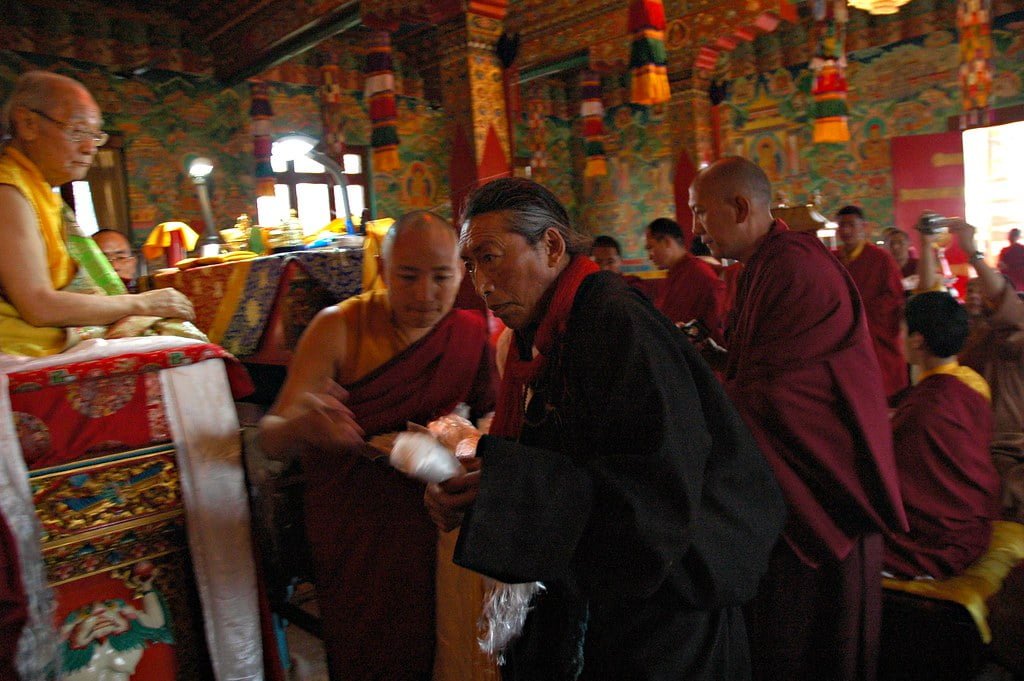What Are the Cultural Do's and Don'ts in Nepal?
In the intricate tapestry of Nepalese culture, navigating the nuances of customs and traditions can be akin to threading a delicate needle. Understanding the do's and don'ts of this vibrant society can greatly enhance your interactions and experiences. From the respectful greeting of 'namaste' to the proper handling of sacred items, each gesture carries significance. By following these guidelines, you not only show respect but also connect on a deeper level with the rich heritage of Nepal.
Greetings and Interactions
When greeting someone in Nepal, it is customary to use 'namaste' or 'namaskar' as a sign of respect. This simple yet profound gesture reflects the cultural value placed on showing respect in interactions. Particularly important is the emphasis on demonstrating respect towards elders. In Nepalese culture, elders hold a revered position, and it is essential to greet them with utmost deference and consideration.
Furthermore, it is crucial to avoid public displays of anger in Nepal, as such behavior is viewed as disrespectful and disruptive to the harmony of social interactions. Respect for privacy is another fundamental aspect of Nepalese etiquette. When visiting homes or temples, it is important to be mindful of others' personal space and to refrain from intruding on moments intended to be private.
Additionally, dressing modestly is a key aspect of adhering to cultural norms in Nepal. Avoiding public displays of affection and dressing in a manner that is considered modest by local standards demonstrates respect for the cultural values prevalent in the country. By being mindful of these customs and practices, you can navigate social interactions in Nepal with grace and consideration for the local culture.
Dining Etiquette
Respect for cultural traditions is paramount when navigating dining etiquette in Nepal. Understanding the dining customs is crucial, as it is customary to serve your own plates and eat with your hands, avoiding the use of spoons and forks. Using the right hand for eating is a key cultural norm, signifying respect and adherence to local traditions. It is important to note that in Nepal, one should never touch a shared drinking vessel with their lips, as this is considered impolite.
Moreover, the use of the left hand is reserved for specific hygiene practices during meals, emphasizing cleanliness and respect for the food being consumed. By following these practices, you not only show respect for the cultural norms but also demonstrate your appreciation for the local way of life.
Adhering to these dining etiquettes is essential to avoid any unintentional disrespect and to immerse yourself fully in the Nepali dining experience. By embracing these customs, you not only showcase your cultural awareness but also foster deeper connections with the local community.
Dress Code and Appearance
To adhere to cultural norms and show respect in Nepal, it is important to dress modestly and in accordance with local customs, especially when visiting sacred places like Hindu temples. In Nepali culture, dressing modestly is a way to demonstrate reverence and honor traditions. Both men and women are expected to cover their shoulders and chest, with pants or skirts below the knee. Men should wear shirts and long trousers in public settings to show respect, while women traditionally wear saris or skirts, particularly when visiting temples and monasteries.
Wearing conservative clothing not only aligns with cultural norms but also helps avoid inadvertently causing offense. Certain clothing choices in Nepal may convey different messages or cultural significance, so it's essential to be mindful of what you wear. By respecting and adhering to conservative clothing attitudes, you not only show consideration for the local customs but also demonstrate your appreciation for the traditions and values upheld in Nepali society.
Religious Customs
Entering Hindu temples in Nepal requires adherence to specific dress codes and the respectful removal of any leather articles. It is essential to seek permission before taking photos inside temples as a gesture of respect towards the sacred space and its objects. When entering temples, it is customary to pass sacred items with your right side facing them, demonstrating reverence and respect for the religious customs. Additionally, it is crucial to refrain from sitting on mani stones or stupas within temples, as these are considered sacred sites and sitting on them would be disrespectful.
Showing anger or frustration inside religious sites is generally frowned upon, as these places are meant for worship and reflection. It is important to maintain a calm and respectful demeanor while visiting these religious sites to uphold the sanctity of the place and show reverence to the beliefs of the local community. Each religious site in Nepal may have its own specific customs and guidelines, so it is advisable to familiarize yourself with the particular practices of each place you visit to ensure you are behaving appropriately and respectfully.
Social Etiquette
Observing social etiquette in Nepal entails adhering to local regulations and cultural norms, especially regarding public smoking, to demonstrate respect and consideration for others. Public smoking is prohibited in Nepal, with a particular emphasis on girls refraining from such behavior to honor cultural practices and regulations. It is essential to avoid smoking in religious sites or crowded areas as a sign of respect towards the community and its beliefs. Respecting local regulations and cultural sensitivities is paramount in social interactions throughout Nepal, showcasing an understanding and appreciation for the customs of the diverse ethnic groups present in the country.
Being mindful of your actions in public spaces not only reflects cultural awareness but also exhibits respect for the values held dear by the local population. Following guidelines regarding public smoking and other displays of affection is crucial to maintain harmonious interactions and foster positive relationships within the Nepalese society. By abiding by these social etiquettes, you contribute to a more inclusive and respectful environment, where individuals from various backgrounds can coexist peacefully while upholding their traditions and beliefs.

